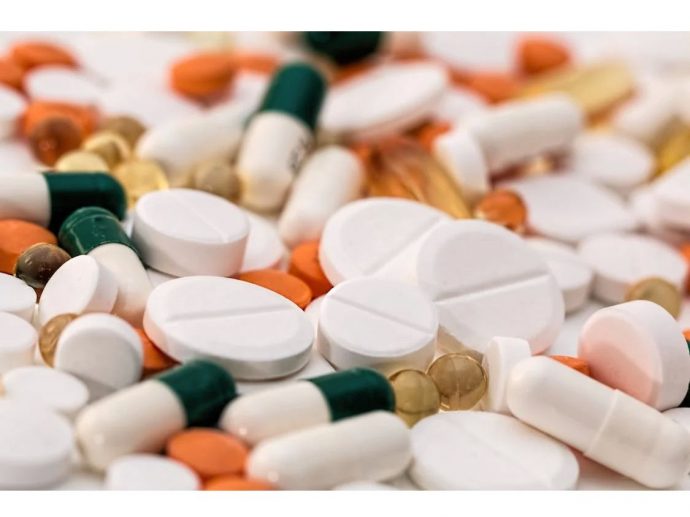Categories more
- Adventures (17)
- Arts / Collectables (15)
- Automotive (37)
- Aviation (11)
- Bath, Body, & Health (77)
- Children (6)
- Cigars / Spirits (32)
- Cuisine (16)
- Design/Architecture (22)
- Electronics (13)
- Entertainment (4)
- Event Planning (5)
- Fashion (46)
- Finance (9)
- Gifts / Misc (6)
- Home Decor (45)
- Jewelry (41)
- Pets (3)
- Philanthropy (1)
- Real Estate (16)
- Services (23)
- Sports / Golf (14)
- Vacation / Travel (60)
- Watches / Pens (15)
- Wines / Vines (24)
- Yachting / Boating (17)
The Importance of Reliable Resources for Drug Abuse
Published
05/20/2024Drug addiction poses a challenge affecting people, families, and communities globally. Having access to resources is key to addressing this issue. Whether it's materials, support systems, or treatment choices, reliable information and assistance are crucial for those dealing with drug addiction. This piece delves into the significance of resources in tackling drug abuse, their impact on individuals seeking help, and how they contribute to community efforts against this problem.
Educational Content: Offering Accurate Details
A crucial aspect of resources for drug abuse is educational content. These materials aim to provide information on the risks of substance abuse and its effects on mental well-being, as well as available treatment options. By sharing facts and research-based findings, educational resources empower individuals with the knowledge needed to make choices about substance use.
Finding sources is essential when seeking information on drug abuse. Numerous reputable organizations produce content supported by research and endorsed by healthcare professionals. These resources deliver explanations about addiction mechanisms, risk factors, signs of substance misuse, and potential outcomes.
Support Systems: Establishing Reliable Connections
Apart from educating individuals on the dangers of substance abuse, support networks play a role in fostering recovery and preventing relapse. Those battling drug addiction need to connect with others who share experiences or possess expertise in helping individuals overcome addiction.
Recovery support groups create a space where individuals grappling with substance abuse can openly share their stories without fear of judgment or discrimination. Within these groups, they can find comfort in the knowledge that they are not alone on their path to sobriety. Moreover, some platforms offer anonymity, allowing individuals to seek advice and support while maintaining their privacy.
Treatment Choices: Facilitating Effective Interventions
Having access to treatment options is crucial for achieving outcomes when addressing drug addiction. Resources must highlight accredited treatment facilities staffed by professionals. Organizations like the Substance Abuse and Mental Health Services Administration (SAMHSA) maintain databases of treatment centers nationwide. These directories help individuals locate facilities offering evidence-based therapies tailored to their requirements.
Treatment resources should detail programs and approaches to ensure prospective patients have a clear understanding of the choices at their disposal. Additionally, addressing accessibility concerns is paramount, with resources advocating for options that cater to individuals from different backgrounds and working towards removing financial barriers wherever feasible.
Moreover, sources must highlight the significance of seeking support from healthcare professionals like doctors and counselors. These experts can evaluate an individual's requirements, offer informed treatment suggestions, or make appropriate referrals. By endorsing practitioners, resource materials instill trust in seeking assistance and help counteract the skepticism sometimes linked with the healthcare system.
Community Collaboration: Working Together Towards a Shared Objective
Community sources are not only essential for those directly dealing with substance abuse but also play a vital role in communities uniting to combat this prevalent issue collectively. By supplying precise information about indicators of substance abuse and local services for aid, these resources empower community members to take proactive measures in recognizing and addressing drug misuse within their neighborhoods.
Preventive measures represent another area where dependable resources significantly influence communities. Educating populations about the perils of drugs and methods to resist substance abuse raises awareness early on and promotes healthier lifestyles.
In Conclusion
Having access to sources is crucial when effectively tackling substance abuse. Educational materials provide details that enable individuals to make choices regarding substance use. Support systems establish environments where individuals grappling with addiction can seek comfort among understanding peers and professionals.
Treatment options help individuals seeking recovery find facilities that offer personalized interventions to meet their needs. Furthermore, community initiatives are gaining traction with the help of sources that share information and promote prevention strategies.
By prioritizing accuracy, credibility, inclusiveness, and effectiveness, dependable resources play a role in preventing drug abuse and providing treatment. They not only support individuals but also strengthen community bonds and empower society to address substance misuse collectively. As we work towards a future free from drug abuse, the presence of dependable resources promotes greater understanding, compassion, and assistance in the journey toward sobriety.















